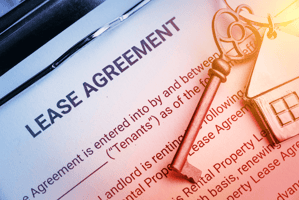Property Management
7 Property Management Accounting Best Practices
Property Management
In addition to property maintenance, one of the most important responsibilities of a property manager is to oversee the income and expenses. Even though it’s a tiring task, you need to have a grasp on your property’s accounts, such as receiving rent and paying for maintenance. Doing so lets you see if your property is generating profit.
Unfortunately, not everyone has a keen eye for managing accounts. Take note that 82% of businesses fail due to poor accounting management, which results in negative or poor cash flow. If you don’t want to be part of the 82%, knowing some property management accounting tips is vital.
Fortunately, this article will share seven best practices for property management accounting. By knowing these practices, you can ensure that your property is generating income and that you’re staying on top of your finances.
1. Prioritize Organization
Rental property accounting requires rigorous organizational skills. Being organized won’t just help you create clear metrics; it’ll also allow you to monitor any transactions clearly. Additionally, paying your property taxes or having documents for an audit becomes easier when your paperwork is organized.
Here are some ways to stay organized:
- Declutter your workspace. A clean and organized environment promotes efficiency.
- Streamline your workflow. Identify and eliminate unnecessary steps.
- Schedule your day. A planned schedule helps you stay focused and productive.
2. Establish a Separate Business Account
It is crucial to treat your rental property as a business. One effective way to do this is to separate your personal and business finances. Open a dedicated business checking account to ensure clear financial tracking.
All income from the property should be deposited into the business account, and all expenses, such as repairs and maintenance, should be paid from this account. For those managing multiple properties, consider opening separate accounts for each to simplify financial tracking and organization.
3. Utilize the Best Property Management Accounting Software
With the advancement and dependence on technology nowadays, tenants expect landlords like you to offer digital payments. One factor that attracts potential tenants is the ease of convenience regarding payments. Thus, make sure to use the right accounting software.
Here are the benefits of using the best rental property accounting software, like ExactEstate.
Eliminate or Lessen Accounting Mistakes
Since any mistakes related to accounting can put a hole in your pocket, it’s best to avoid them altogether. Thankfully, by using property accounting software, you can lessen or even eliminate the chances of committing any mistakes.
- First, the software will allow you to keep track of the tenant's payments—when they paid and how much.
- Second, you’ll have a clear overview of your financial standing, which will allow you to cut costs or invest in more property.
- Lastly, some accounting software will allow you to link to other property management apps you’re using, streamlining your workflow.
Reduce Overhead Costs
Although you must initially pay for the property management software, it can be a worthwhile investment. How? Since most of your accounting tasks are automated, you’ll be free to do other important tasks. Automation, additionally, will help reduce your overhead costs due to its features.
For instance, if your property management software has built-in accounting software, you can also check a prospect’s background, so say goodbye to renting to nightmare tenants. Most all-in-one PMSs should have a document storage option to upload and sign agreements online. Having all of these tasks in one place will remove the need to invest in other applications.
Improve Customer Experience
An improved customer experience always translates to profit, regardless of the nature of the business. Regarding property management, 69% of managers say that a service-oriented culture brings positive results to their business. Hence, it’s important to have a good relationship with your tenants. One way of doing this is to have multiple payment options.
Fortunately, property management software enables you to accept any form of payment and keep track of it. It can even provide the option to set up recurring payments, allowing tenants never to miss paying their rent and streamlining rent generation.
4. Choose an Accounting Method
You can choose two types of accounting methods: accrual accounting and cash accounting. Regardless of the method you choose, make sure to stay consistent with it.
Here’s a breakdown of the two.
Accrual
Accrual accounting involves recording transactions when money is due. This method allows property managers to keep track of who is late on their rent.
Cash
Cash accounting means entering when payment is received, and any expenses are made. This method doesn’t allow property managers to keep track of late rent.
5. Choose a Bookkeeping Method
After choosing an accounting method, the next step is to choose a bookkeeping method. One of the keys to success with your rental properties is applying the best bookkeeping practices. This is because you’ll know if a property is functioning well, allowing you to make the necessary changes.
Here are two bookkeeping methods you can choose from:
- Single-entry: This method records any financial transactions, profit or expense, just once.
- Double-entry: Most businesses use this method because it’s more transparent. This bookkeeping practice involves recording every transaction twice—as a debit and as a credit.
6. Properly Generate Financial Statements
You can now have clear and proper financial statements by having a bookkeeping method. This refers to a report that shows how your properties are performing. Here are the key things that should be in your financial statement:
- Balance sheet: This sheet shows your current liabilities and assets, showing how much money you can move.
- Cash flow statement: This sheet shows where your money is going and how much you have left.
- Income statement: This sheet displays how much money you make in a month or year.
A financial statement is helpful for record tracking and will also enable you to file and prepare your taxes easily.
7. Prepare for Unexpected Expenses
Even if you have good tenants who pay on time, there will always be expenses you may not see coming, like repairs, renovations, or pest control. Instead of finding ways to come up with cash to pay for an unexpected expense or a last-minute purchase, it's important to allocate some money for these situations.
To know how much money to set aside, look at your records, which is another reason why bookkeeping is important. Then, try to pinpoint any unexpected expenses you previously made to use as a reference.
Takeaway
By applying the above property management accounting best practices, you can rest assured that your rental property generates income. Remember to have a backup for your records, whether a hard copy, on the cloud, or a spreadsheet. This ensures that your records are safe against threats like theft.
Most importantly, make sure to use rental property software like ExactEstate. ExactEstate is a cloud-based, modern, fully customizable management software catering to the multifamily industry. With ExactEstate, you’ll have more chances of generating profit as it conveniently enables you to track your financial status. Request a demo to learn more.


